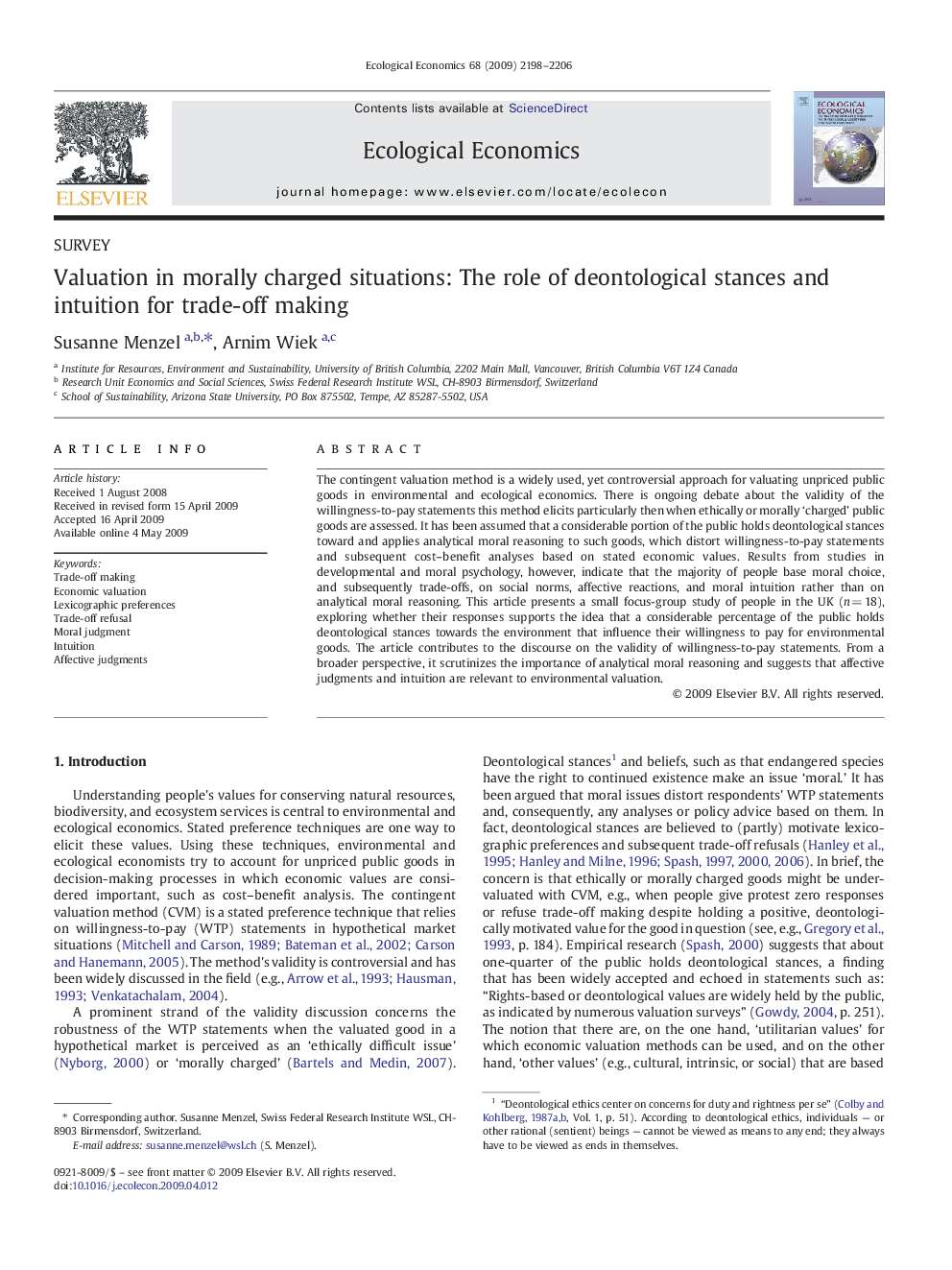| Article ID | Journal | Published Year | Pages | File Type |
|---|---|---|---|---|
| 5051018 | Ecological Economics | 2009 | 9 Pages |
The contingent valuation method is a widely used, yet controversial approach for valuating unpriced public goods in environmental and ecological economics. There is ongoing debate about the validity of the willingness-to-pay statements this method elicits particularly then when ethically or morally 'charged' public goods are assessed. It has been assumed that a considerable portion of the public holds deontological stances toward and applies analytical moral reasoning to such goods, which distort willingness-to-pay statements and subsequent cost-benefit analyses based on stated economic values. Results from studies in developmental and moral psychology, however, indicate that the majority of people base moral choice, and subsequently trade-offs, on social norms, affective reactions, and moral intuition rather than on analytical moral reasoning. This article presents a small focus-group study of people in the UK (n = 18), exploring whether their responses supports the idea that a considerable percentage of the public holds deontological stances towards the environment that influence their willingness to pay for environmental goods. The article contributes to the discourse on the validity of willingness-to-pay statements. From a broader perspective, it scrutinizes the importance of analytical moral reasoning and suggests that affective judgments and intuition are relevant to environmental valuation.
